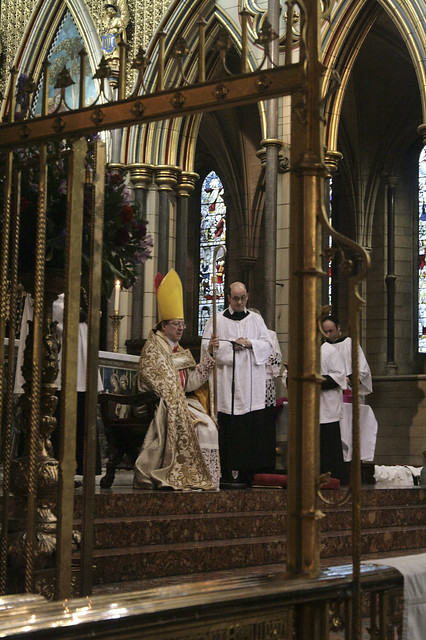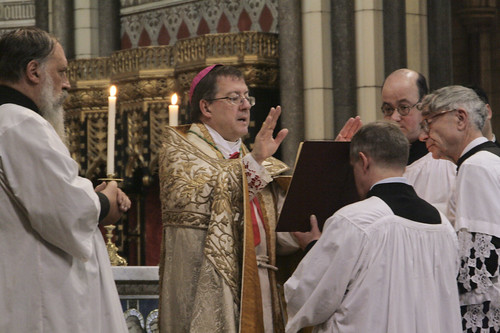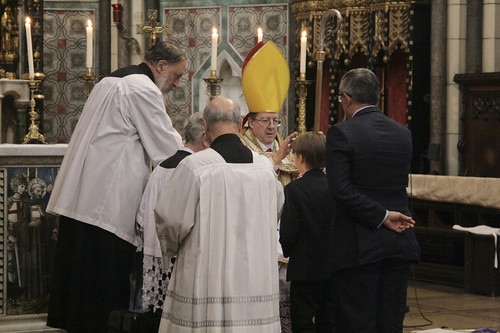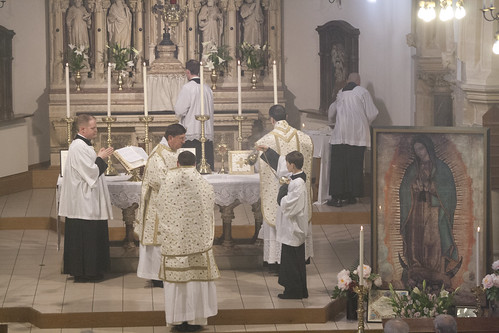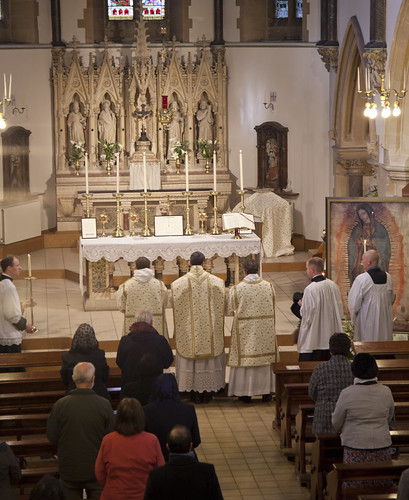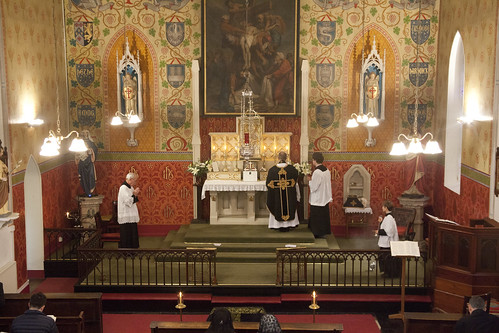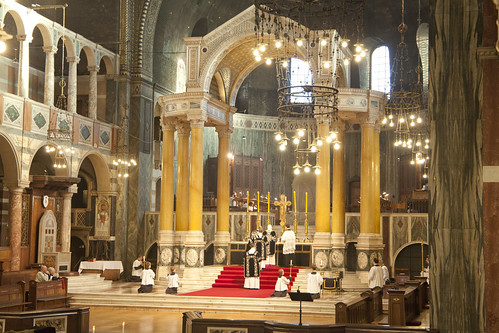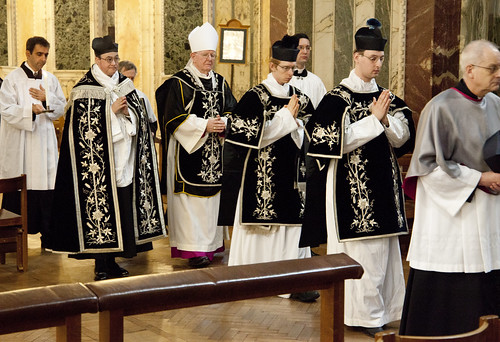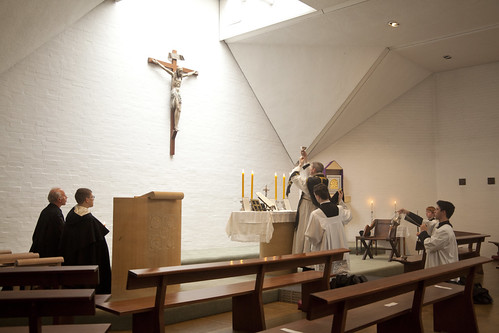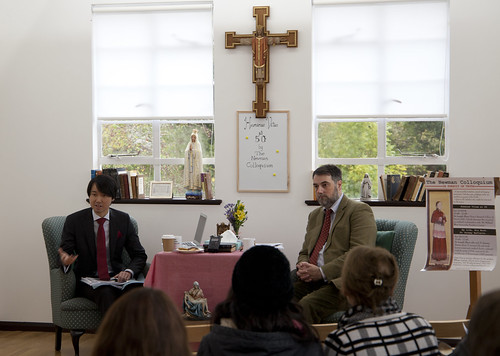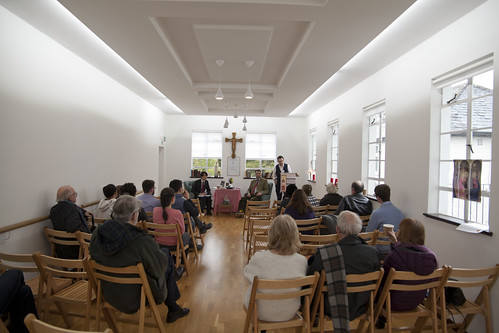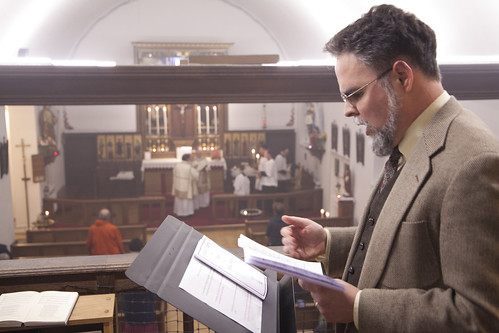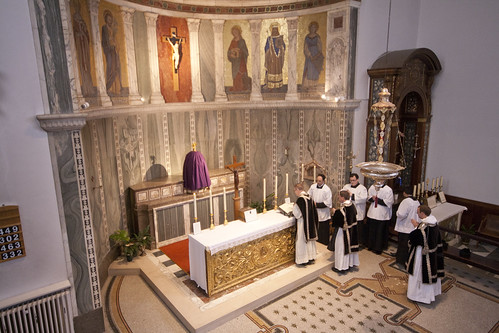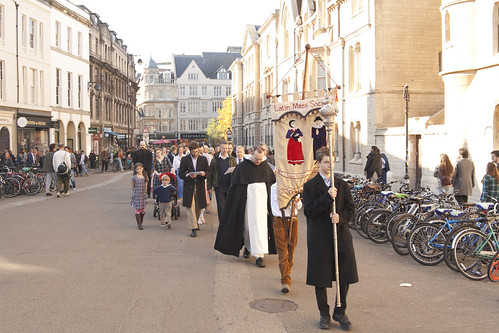 Matthew Schellhorn writes:
Matthew Schellhorn writes:For several years, I have had the honour of directing the music on Christmas Eve in St Mary Moorfields in the City of London, at the First Mass of Christmas organised by the Latin Mass Society.
It is the custom to follow the Last Gospel with a congregational rendition of the hymn “Adeste, fideles” (most frequently sung elsewhere in its English form, “O Come, all ye Faithful”).).
One might adapt the well known version in Carols for Choirs, but in fact the genesis of the hymn is so complex, and the melodic and harmonic incarnations so multiplicitous that all the musical options deserve to be under the tree and on offer.
As a result, I have compared and drawn together the many different versions, freely adapting from the chant versions in the Liber usualis (1932 and 1961) and Mass and Vespers (1957), and also from the organ harmonisations of chant in Nova organi harmonia, the De La Salle Hymnal for Catholic Schools and Choirs (1913), the Thomas Helmore’s harmonisation of the Hymnal Noted (1852), editions by Martin Shaw (1875–1958) and the choral motet by François-Clément Théodore Dubois (1837–1924).
I trust that Sir David Willcocks (1919–2015), under whose baton I had the honour of working in Worcester, would be content.
The new, hybrid version plays on expectations and – in the best tradition of last-verse descants – confounds musical etiquette in a whimsical way.
The result is similar to the sensation of meeting up with relations at Christmas festivities – some one knows well, and some one has not seen for a long time.
Please note: I must be getting old, because I have lost the will to fight against the infamous passing note before the refrain, which in any case I find in several honourable sources.
My arrangement is dedicated to my God-daughter, Miss Barbara Shaw, daughter of the Latin Mass Society’s Chairman, Joseph Shaw, on the occasion of her First Holy Communion in Oxford. Although owing to my professional commitments I am unable to be present on this auspicious occasion, I hope this offering will display my being united to her in prayer.
You can see the music here.
Support the Latin Mass Society




